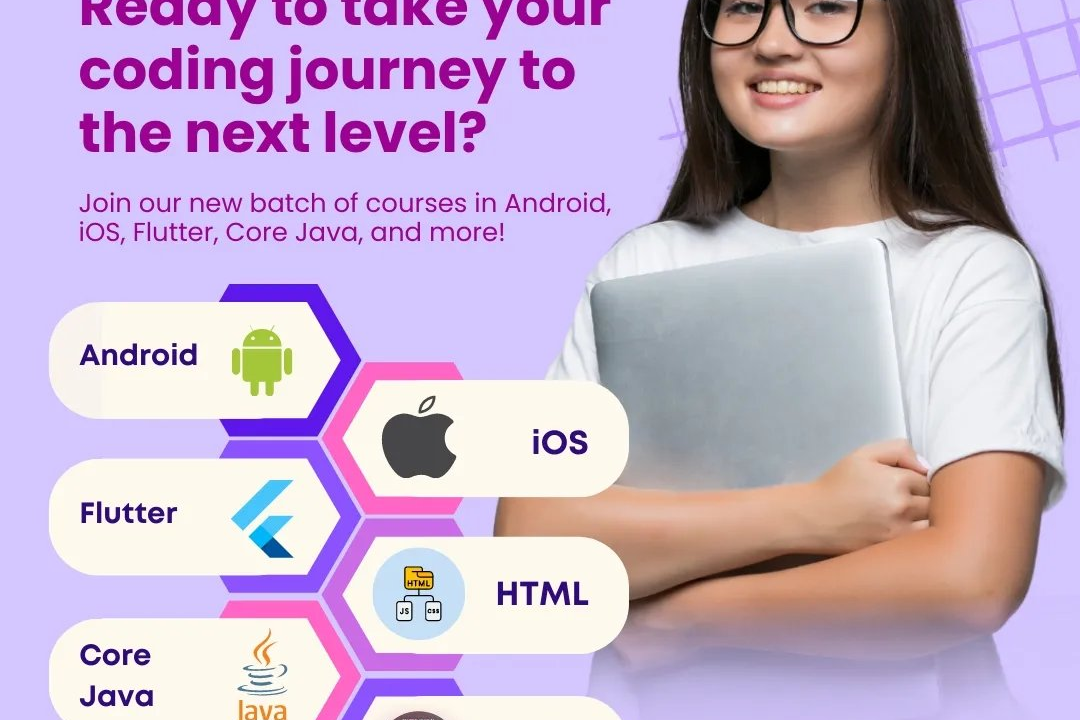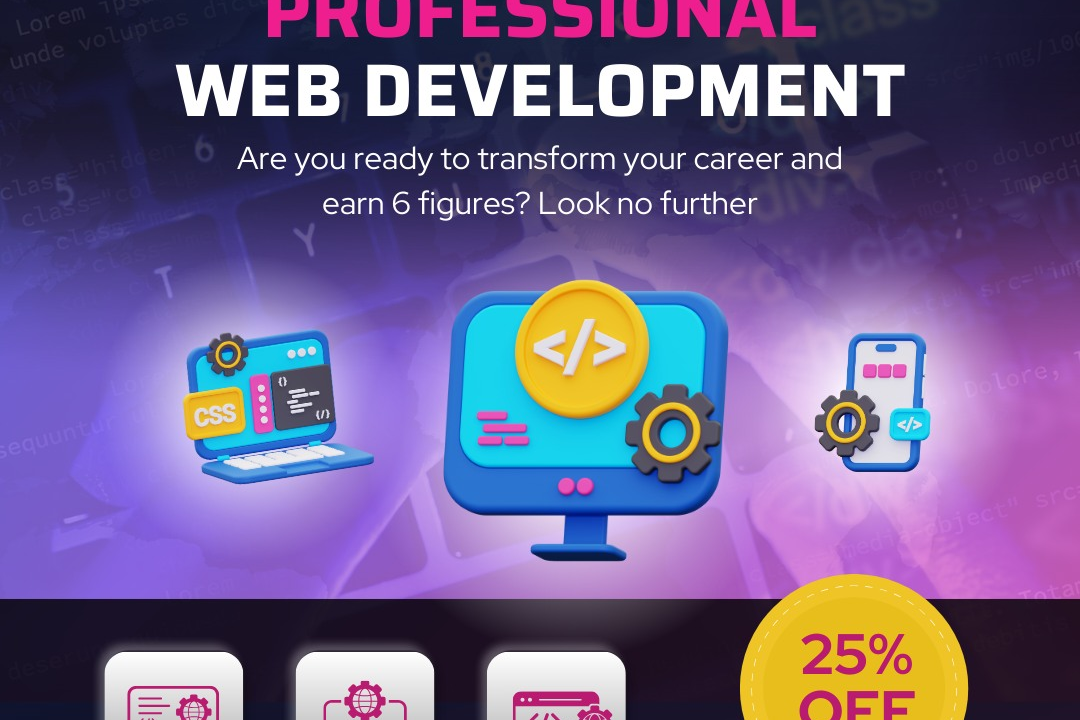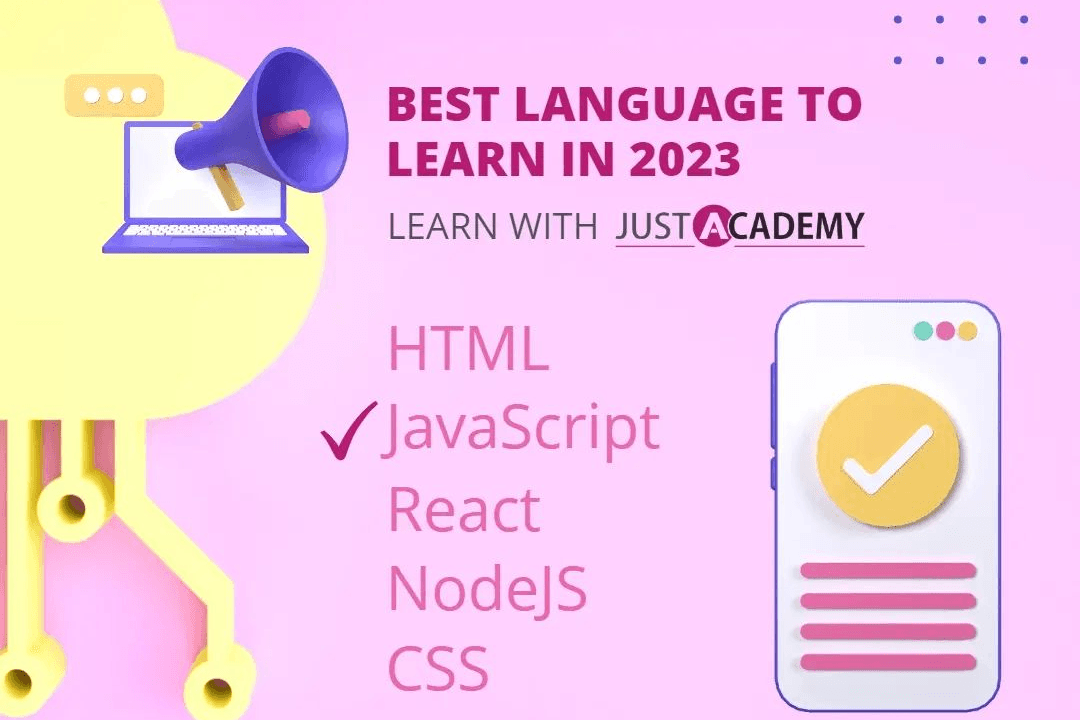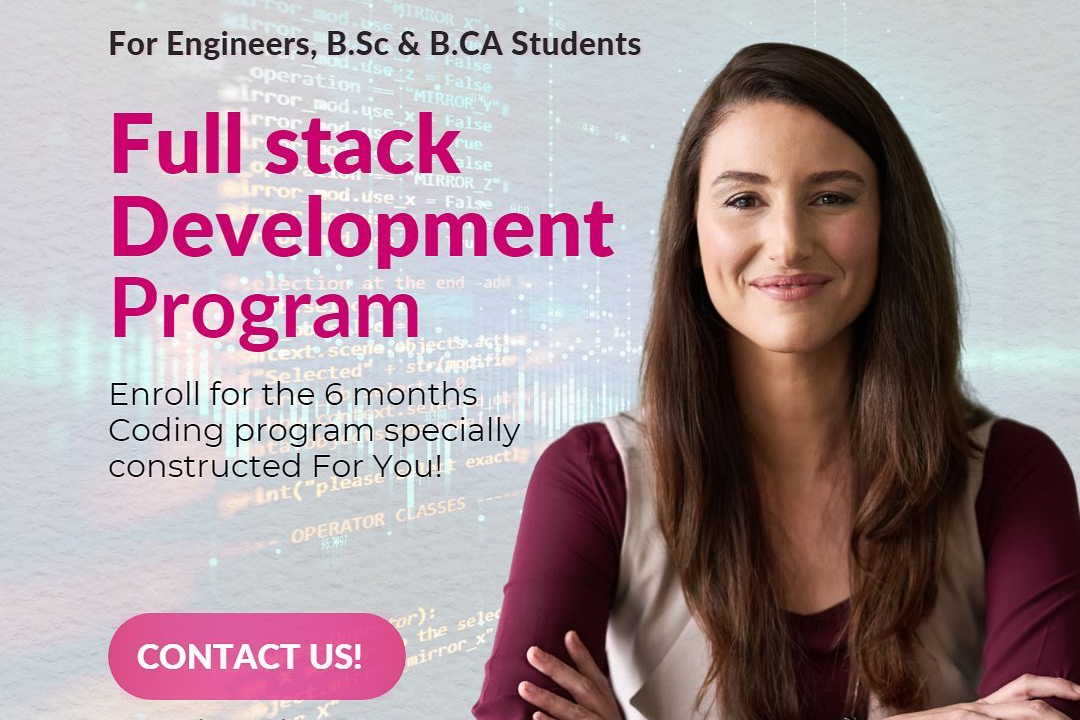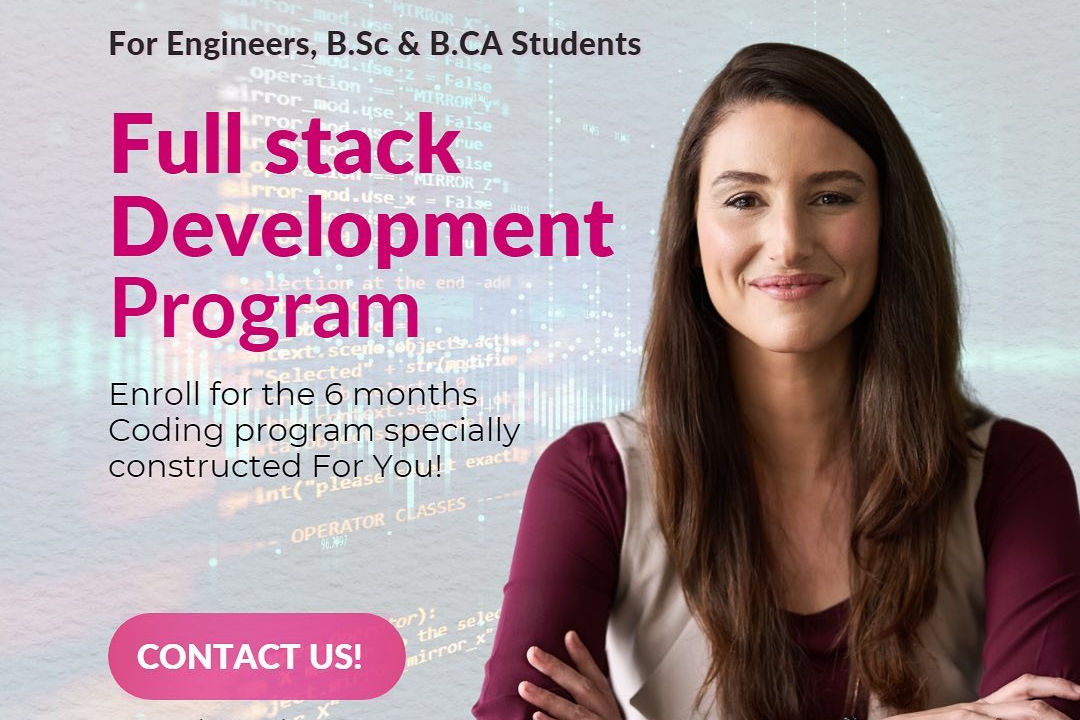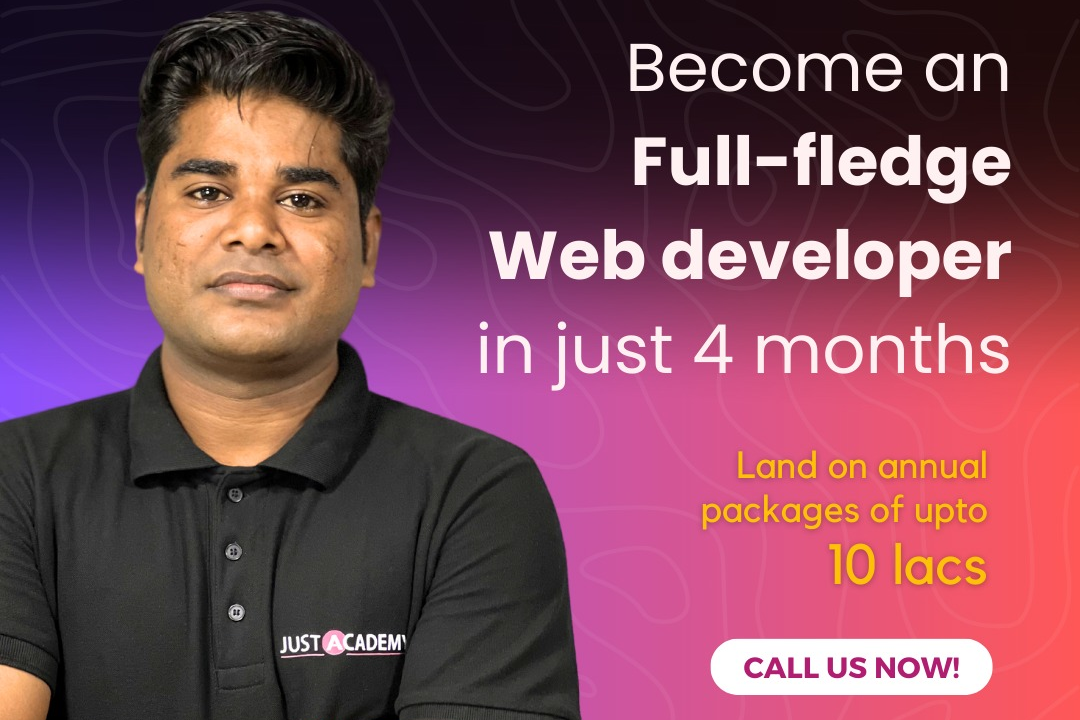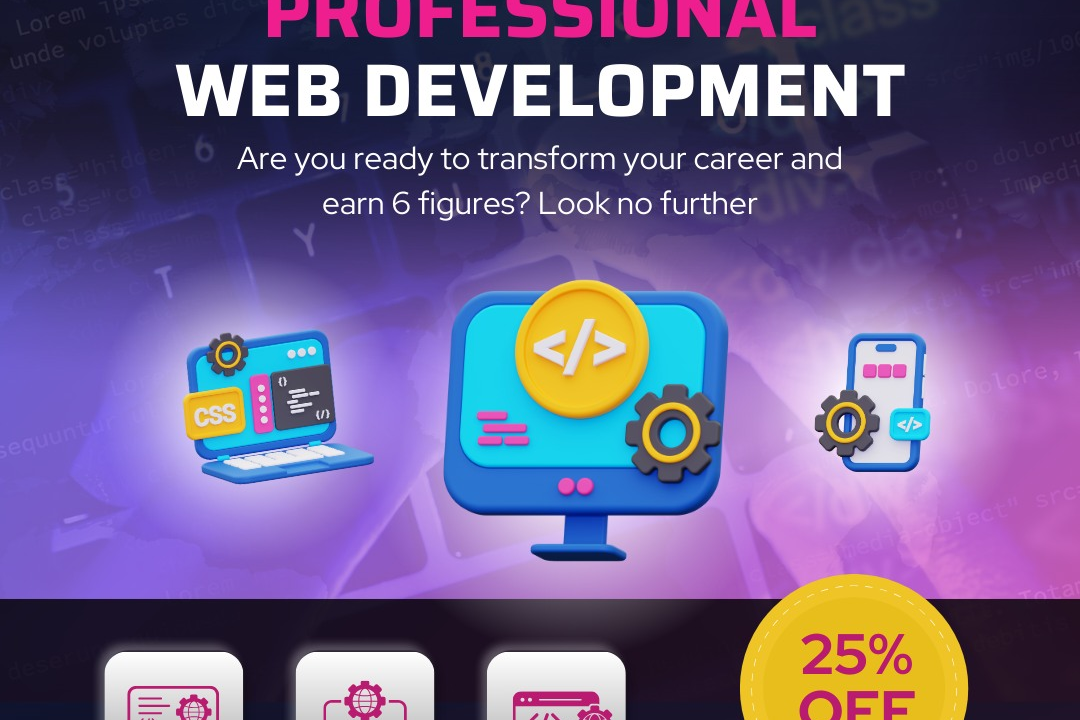Easy Way To Learn PHP Programming
Learning PHP programming can be straightforward and enjoyable, especially for newcomers to web devel
Easy Way To Learn PHP Programming
Learning PHP programming opens up numerous opportunities in web development, as it's widely used to create dynamic and interactive websites. One of the easiest ways to learn PHP is through hands-on practice, starting with the basics of its syntax and gradually moving to more complex projects. PHP's simplicity and flexibility allow learners to see immediate results, making it easier to grasp concepts. Many resources, such as online tutorials, forums, and coding bootcamps, provide structured paths for beginners. Moreover, acquiring PHP skills can enhance career prospects in the tech industry, as it's highly sought after for server-side development, e-commerce, and content management systems like WordPress.
To Download Our Brochure: https://www.justacademy.co/download-brochure-for-free
Message us for more information: +91 9987184296
Learning PHP programming opens up numerous opportunities in web development, as it's widely used to create dynamic and interactive websites. One of the easiest ways to learn PHP is through hands on practice, starting with the basics of its syntax and gradually moving to more complex projects. PHP's simplicity and flexibility allow learners to see immediate results, making it easier to grasp concepts. Many resources, such as online tutorials, forums, and coding bootcamps, provide structured paths for beginners. Moreover, acquiring PHP skills can enhance career prospects in the tech industry, as it's highly sought after for server side development, e commerce, and content management systems like WordPress.
Course Overview
The “Easy Way to Learn PHP Programming” course is designed for beginners who aspire to master PHP, one of the most popular server-side scripting languages. This comprehensive course covers the fundamental concepts of PHP, including syntax, variables, data types, control structures, and functions, while providing hands-on experience through real-time projects. Participants will learn how to create dynamic web pages, interact with databases, and implement essential security measures, enabling them to build robust web applications. With a focus on practical application, this course equips students with the necessary skills to kickstart their journey in web development and advance their career opportunities in the tech industry.
Course Description
The “Easy Way to Learn PHP Programming” course offers a straightforward approach for beginners eager to dive into the world of web development using PHP. Participants will explore essential PHP concepts, including syntax, data types, control structures, and functions, while engaging in real-time projects that reinforce their learning. This course emphasizes practical application, allowing students to build dynamic and interactive web applications while seamlessly integrating with databases. By the end of the course, students will have a solid foundation in PHP programming, empowering them to pursue advanced topics in web development and enhance their marketability in the tech industry. Ideal for those looking to kickstart a career in programming or expand their skill set, this course combines theory with hands-on experience to ensure a comprehensive understanding of PHP.
Key Features
1 - Comprehensive Tool Coverage: Provides hands-on training with a range of industry-standard testing tools, including Selenium, JIRA, LoadRunner, and TestRail.
2) Practical Exercises: Features real-world exercises and case studies to apply tools in various testing scenarios.
3) Interactive Learning: Includes interactive sessions with industry experts for personalized feedback and guidance.
4) Detailed Tutorials: Offers extensive tutorials and documentation on tool functionalities and best practices.
5) Advanced Techniques: Covers both fundamental and advanced techniques for using testing tools effectively.
6) Data Visualization: Integrates tools for visualizing test metrics and results, enhancing data interpretation and decision-making.
7) Tool Integration: Teaches how to integrate testing tools into the software development lifecycle for streamlined workflows.
8) Project-Based Learning: Focuses on project-based learning to build practical skills and create a portfolio of completed tasks.
9) Career Support: Provides resources and support for applying learned skills to real-world job scenarios, including resume building and interview preparation.
10) Up-to-Date Content: Ensures that course materials reflect the latest industry standards and tool updates.
Benefits of taking our course
Functional Tools
1 - Visual Studio Code (VS Code): This powerful text editor is widely used by developers for its rich features and ease of use. VS Code supports various programming languages, including PHP, through extensions. It offers syntax highlighting, code suggestions, and debugging capabilities. Students will learn to set up their development environment using VS Code, enabling them to write, test, and debug their PHP code efficiently. Its integrated terminal allows learners to run commands directly from the editor, streamlining the coding process.
2) XAMPP: XAMPP is a free and open source cross platform web server solution stack package that simplifies the process of running PHP locally. It includes Apache, MySQL, and PHP, providing students with a complete environment to develop and test their applications. Learners will gain hands on experience setting up XAMPP, creating databases, and deploying PHP scripts, which is crucial for understanding how web applications operate in a server environment.
3) PHPMyAdmin: A widely used tool for managing MySQL databases through a web interface, PHPMyAdmin allows students to create, modify, and delete databases easily. It's essential for learners to understand database interactions when developing PHP applications. The course will cover tasks such as creating database schemas, executing queries, and manipulating data within PHP, equipping students with the skills needed to integrate PHP with database systems effectively.
4) Postman: Postman is a popular API development tool that enables students to test and interact with APIs. Since modern PHP applications often interact with APIs for data exchange, learning Postman is crucial. Students will explore sending requests, analyzing responses, and managing environment variables within Postman. This experience will enhance their understanding of how to build and consume APIs using PHP, an essential skill in today's web development landscape.
5) Git and GitHub: Version control is a critical skill for every developer. The course introduces students to Git, a tracking system for changes in code, and GitHub, a platform for hosting and collaborating on code. Learners will learn to create repositories, commit changes, and manage branches, which are vital for maintaining code quality. Understanding Git and GitHub also facilitates collaboration in team projects, making it easier for students to work together and contribute to shared codebases.
6) Debugging Tools: Effective debugging is vital for any programmer, and students will learn to use built in debugging tools as well as third party debugging plugins. These tools help identify and resolve errors in PHP code quickly. The course will teach students common debugging techniques, such as using breakpoints and inspecting variable states, ensuring they can maintain high quality code and troubleshoot issues effectively. This skill set is essential for building robust applications and adds significantly to their programming expertise.
7) Composer: Composer is a dependency management tool for PHP that allows developers to manage libraries and packages easily. Learning Composer is essential for students as it helps them to efficiently include third party libraries in their projects. The course will cover how to create a `composer.json` file, install packages, and update dependencies, enabling learners to streamline their development process and ensure they are using the latest versions of libraries while avoiding conflicts.
8) Frameworks (Laravel/Symfony): Familiarity with PHP frameworks can greatly accelerate development timelines and enhance code organization. The course will introduce students to popular frameworks such as Laravel and Symfony. Learners will explore MVC architecture, routing, and ORM features. Through practical projects, students will develop skills in building scalable and maintainable applications, ultimately improving their job readiness and understanding of modern web development practices.
9) Unit Testing with PHPUnit: Testing is a key aspect of software development that ensures code reliability. PHPUnit is a widely used testing framework for PHP that simplifies the process of writing unit tests. Students will gain practical experience in creating test cases that validate their code, ensuring functionality and reducing bugs. Understanding unit testing will instill best practices in code quality and maintenance, making students more effective developers.
10) API Development using RESTful Principles: As web applications increasingly rely on APIs, learning to create RESTful services in PHP is crucial. The course will guide students through the principles of REST and how to implement them using PHP. They will learn to create endpoints, handle requests, and structure responses, enabling them to build applications that communicate effectively with front end and third party services.
11 - User Authentication and Authorization: Securing applications is a critical concern for developers. The course will teach students how to implement user authentication (e.g., using sessions, cookies) and authorization (e.g., role based access control) in PHP applications. Students will learn to create login systems, manage user roles, and protect sensitive areas of their applications, fostering a secure development mindset.
12) Deployment Basics: Understanding the deployment process is essential for any developer. The course will cover various deployment methods, including shared hosting, VPS, and cloud platforms. Students will learn the steps required to launch their PHP applications, configure web servers, and manage databases in a production environment. This knowledge will empower learners to transition their projects from development to production confidently.
13) Working with Front End Technologies: Integration with front end technologies is often necessary for full stack development. Students will gain a basic understanding of HTML, CSS, and JavaScript and how they interact with PHP. The course will include practical exercises that illustrate how to create dynamic web pages that respond to user actions, thereby enhancing the user experience and solidifying the students’ full stack capabilities.
14) Error Handling and Logging: Effective error handling and logging are vital for maintaining application performance and debugging issues. The course will introduce students to PHP's built in error handling techniques and logging mechanisms. They will learn how to capture and log errors, which is essential for tracking down bugs and ensuring the application runs smoothly. Understanding these concepts will greatly enhance their ability to build reliable applications.
15) SEO Basics: As web developers, understanding the basics of Search Engine Optimization (SEO) is beneficial. The course will cover how to structure URLs, implement meta tags, and optimize site content to improve search visibility. By incorporating SEO practices in their PHP projects, students will learn to create web applications that not only function well but are also discoverable by search engines, adding significant value to their skill set.
Browse our course links : https://www.justacademy.co/all-courses
To Join our FREE DEMO Session:
This information is sourced from JustAcademy
Contact Info:
Roshan Chaturvedi
Message us on Whatsapp: +91 9987184296
Email id: info@justacademy.co
Beginers Logical Interview Questions Php
Keys2 Java Selenium Core Java Selenium Training In Marathahalli Bangalore

